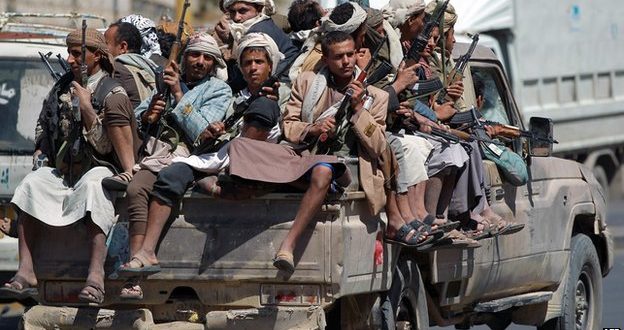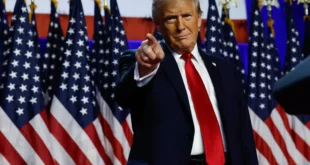By Shehab Al-Makahleh
Many people were surprised by the unprecedented and violent threats that Abdul Malik al-Houthi, leader of Ansar Allah Al Houthi Movement, directed against the United Arab Emirates when he vowed to launch missile attacks against targets in the UAE and against Saudi oil targets. Abdul Malik stressed that the targets in the UAE and in KSA are within the range of the Houthi missiles which were equipped with state-of-the-art technology.
The surprise is that it is the first time that the leader of Ansar Allah has directed such threats to the UAE, with its capital, Abu Dhabi in particular, since the start of the Yemeni crisis two and a half years ago and more importantly warning Western companies that they should view “the UAE as an insecure country after today”.
These threats and the manner in which they were formulated indicate the existence of a “great concern” in the Houthi movement and its leader, stemming from the plans of the UAE and its future steps, which have become a strategic and possibly existential threat to the Houthis in Yemen. The Houthis leader did not disclose these concerns. However, they can be summarized in two main points.
The first lies in the real fears amongst the Houthi leaders of the role the UAE is playing in Yemen. According to the Houthis, the UAE is striving to break up the Houthi-Saleh alliance in a bid to cajole former Yemeni President Ali Abdullah Saleh to join the Saudi-led Arab coalition in order to declare war against the Houthis because Saleh and his soldiers are the most qualified and experienced to perform this mission provided that he is awarded full support and assistance by the UAE and KSA to carry out this task.
The second is the growing military buildup led by the UAE and its military leadership in Yemen in preparation for launching an imminent ground, sea and air attack to seize the port of Hodeidah, which is the sole and most important port held by the Houthis; in other words, it is the window for the Houthis without which they will be starving and suffocating due to the shortage in food, commercial and military supplies.
During an hour-and-a-half meeting between the Saleh conference representatives and the Houthi delegates, 45 minutes of which was between Saleh and Abdul Malek Al Houthi, the former Yemeni president denied any contacts with the UAE. The rapprochement and rumors that spread on the social media amidst Al Houthi’s concerns that the talks could not remove these fears as the level of trust between the two parties has deteriorated.
Furthermore, the concerns of the Houthis of an attack to be launched by the UAE on the port of Hodeidah are clear. Abdul Malik’s statement was clear in this regard. He threatened saying: “If they wanted their oil vessels to ship with no risk, they should not resort to invading the port of Hodeidah. We will use tactics and techniques we have never used before and Saudi and Emirati oil platforms and installations are in the range of our missiles”.
It was noticeable that Abdul Malik Al-Houthi threats were a replica of the rhetoric used by Hizbollah leader Hassan Nasrallah, when the Houthi leader said: “Our missiles have a reach beyond Riyadh and our production plans of these missiles are progressing.”
However, the Houthi threats to the UAE fell on deaf ears when Anwar Gargash, UAE Minister of State for Foreign Affairs, voiced “indifference”, saying “the Houthis and their irrationality do not frighten us and reflect the level of despair they have reached”.
For the Houthis, any attack on the port of Hodeidah will be faced with immense defense as this seaport represents a matter of life or death for the movement. The Houthi sources believe that the coalition have already failed to take full control of the smaller port of Al Maha, and the coming battle will be a battle of life or death. Thus, the Houthis rhetoric is a warning message to the UAE not to approach Hodeidah.
As the war in both Syria and Iraq is drawing to a close, with the Russian-Syrian-Iranian-Turkish axis getting out of the war as the biggest winner, it is not ruled out that the escalation would move to the Yemeni front directly or indirectly.
 Geostrategic Media Political Commentary, Analysis, Security, Defense
Geostrategic Media Political Commentary, Analysis, Security, Defense





